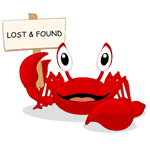Account Suspected of SPAM
 This account is suspected of spamming travelblog.org and has been disabled. If this is in error please contact us
This account is suspected of spamming travelblog.org and has been disabled. If this is in error please contact us This account is suspected of spamming travelblog.org and has been disabled. If this is in error please contact us
This account is suspected of spamming travelblog.org and has been disabled. If this is in error please contact us